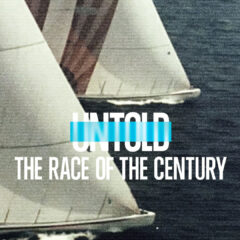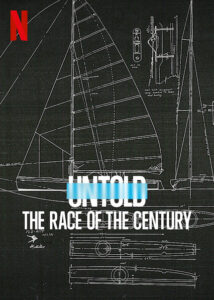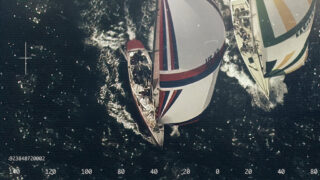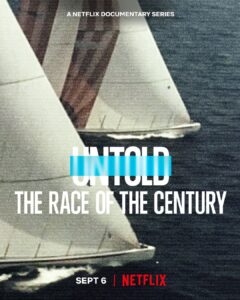
Not all documentaries are cinematic. Sometimes it’s the perspective or narrative that makes it more informative and less entertaining, and sometimes it’s just the story. But when a documentary is truly cinematic, it is something to behold. That is what Untold: The Race of the Century is.
The official Netflix description for the episode of their Untold documentary series about The Race of the Century states, “The Australia II yacht crew looks back on the motivation, dedication and innovation that led to their historic victory at the 1983 America’s Cup.”
And while that may be true, it doesn’t really live up to the story that actually unfolds. The Race of the Century was just that, but it wasn’t just one singular race. It wasn’t just one country versus another. It is a true underdog story, like the kind you read about and the ones that usually get made into movies.
That in a best-of-seven contest it went all the way to seven would have been enough to make this interesting. America’s 132-year streak of holding on to the cup would have been enough, as the battle of old money versus new money would have.
 Now, I am aware that as prestigious as The America’s Cup is, it isn’t for everyone. Most people hear “yacht racing” and tend to tune out. But it is the pinnacle of competitive sailing and yet it’s unlike other pinnacle championships in other sports. The winner of the America’s Cup gets to host the next one. Imagine if that were the case with medal counts in the Olympics or the World Cup.
Now, I am aware that as prestigious as The America’s Cup is, it isn’t for everyone. Most people hear “yacht racing” and tend to tune out. But it is the pinnacle of competitive sailing and yet it’s unlike other pinnacle championships in other sports. The winner of the America’s Cup gets to host the next one. Imagine if that were the case with medal counts in the Olympics or the World Cup.
This makes it more than just a championship for the winning country’s boat. It makes it a financial boon for the winning country’s economics and tourism. When you see how desperate the Americans were to win by almost any means necessary, you realize just how important the entirety of the contest is.
As an underdog story and a story that’s kind of generally about economics, it’s a pretty interesting tale, but it’s the details that really make this cinematic. It’s so grandiose, in fact, that it feels like a good producer would throw out some of the details just to make it more believable.
 America’s yacht Liberty was designed and engineered by a subcontractor of the Department of Defense using U.S. Navy and aerospace technology and a design team of almost 30 people. Australia, on the other hand, had just one man, an eccentric genius named Ben Lexcen whom they called Benny.
America’s yacht Liberty was designed and engineered by a subcontractor of the Department of Defense using U.S. Navy and aerospace technology and a design team of almost 30 people. Australia, on the other hand, had just one man, an eccentric genius named Ben Lexcen whom they called Benny.
It’s the skipper of Australia II that really kicks off and ends the documentary, and not because of what he did but because of his words. The first words you hear are from John Bertrand, saying, “I’ve never met a world champion that’s a normal person. You gotta be screwed up in some manner to get out of bed to do extraordinary things. And I’m screwed up… Underneath this veneer of being a normal, nice guy, I have a huge ego. There’s gotta be some motivation to drive someone to extraordinary lengths. And the ego is part of my drive.”
 While it drove him to great lengths and great achievement, he did skipper the winning Australia II afterall, and it didn’t bury him either. In the end, he didn’t defend the cup as skipper in 1987. When asked why not directly during an interview at that time, he said, “The fire’s out of my belly, and content people don’t become world champions. And I’m content in that part of my life, and I’m really keen and excited to move out into new directions. And that’s what I’m doing.”
While it drove him to great lengths and great achievement, he did skipper the winning Australia II afterall, and it didn’t bury him either. In the end, he didn’t defend the cup as skipper in 1987. When asked why not directly during an interview at that time, he said, “The fire’s out of my belly, and content people don’t become world champions. And I’m content in that part of my life, and I’m really keen and excited to move out into new directions. And that’s what I’m doing.”
So it’s not just an underdog story. It’s also a story about getting lost in the achievement and still holding on to enough of yourself to come out of it on the other side.
It’s a story almost too amazing for fiction, but it really did happen. In 1983, Australia, with John Bertrand at the helm of Australia II, defeated the undefeated United States and their boat Liberty in what was then not just the race of the century but the upset of the century. It’s worth reliving whether you know about it or learning and experiencing for the first time through Untold: The Race of the Century.
Read the Secret File of technical information and quotes from Untold: The Race of the Century.